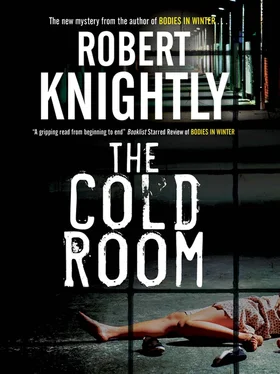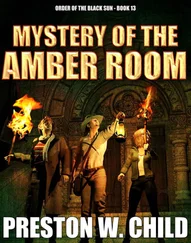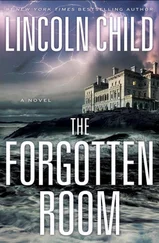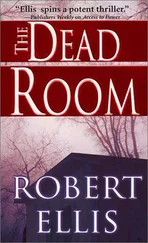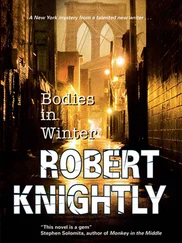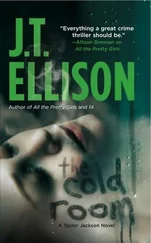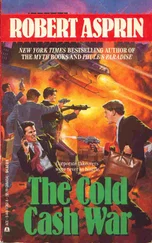Robert Knightly - The cold room
Здесь есть возможность читать онлайн «Robert Knightly - The cold room» весь текст электронной книги совершенно бесплатно (целиком полную версию без сокращений). В некоторых случаях можно слушать аудио, скачать через торрент в формате fb2 и присутствует краткое содержание. Жанр: Полицейский детектив, на английском языке. Описание произведения, (предисловие) а так же отзывы посетителей доступны на портале библиотеки ЛибКат.
- Название:The cold room
- Автор:
- Жанр:
- Год:неизвестен
- ISBN:нет данных
- Рейтинг книги:3 / 5. Голосов: 1
-
Избранное:Добавить в избранное
- Отзывы:
-
Ваша оценка:
- 60
- 1
- 2
- 3
- 4
- 5
The cold room: краткое содержание, описание и аннотация
Предлагаем к чтению аннотацию, описание, краткое содержание или предисловие (зависит от того, что написал сам автор книги «The cold room»). Если вы не нашли необходимую информацию о книге — напишите в комментариях, мы постараемся отыскать её.
The cold room — читать онлайн бесплатно полную книгу (весь текст) целиком
Ниже представлен текст книги, разбитый по страницам. Система сохранения места последней прочитанной страницы, позволяет с удобством читать онлайн бесплатно книгу «The cold room», без необходимости каждый раз заново искать на чём Вы остановились. Поставьте закладку, и сможете в любой момент перейти на страницу, на которой закончили чтение.
Интервал:
Закладка:
‘There’s only one with any kind of circulation, Gazeta Warszawa. For Polish immigrants, it’s the paper of record.’
That was enough for me and I took a ride to the paper’s offices in Long Island City. Though I showed my badge and explained the situation in enough detail to draw pity from a psychopath, Lucjan Bilawski refused to discount his advertising rates.
‘First thing, I get lots of calls from desperate relatives. If I ran free ads for every one of them, there wouldn’t be room for the paying customers. Now, in this case, being as this is a murder, we’d run it as a news story if you could prove that she was Polish.’
I couldn’t, of course, and so I paid out three hundred sixty-five dollars for an ad that would run from Thursday through Sunday. At Bilawski’s suggestion, I laid out the facts in Polish, him translating: murder victim, unidentified, help the police. On the bottom, I left the number of my cell phone.
Bilawski smiled when he took my check. He shook my hand vigorously. ‘If you decide you want the ad to run past Sunday, you don’t have to come back. Just give me a ring. I’ll take your credit card.’
TEN
I carried Dominick Capra’s revelations through the rest of that week, carried them along First Avenue where grown men delivering food on bicycles flew past me. They worked for tips, these men, gathering in small knots outside the many restaurants, their battered bikes chained to meters and no-parking signs. Everybody knew they were in the country illegally. The Mayor knew it. The City Council knew it. The New York Times knew it. Dominick Capra knew it. Just as all knew there was a less visible army of illegals out there, sewing dresses, cleaning floors, mowing lawns, busing tables in restaurants all over the city.
But if there’s a government agency prepared to deal with the problem, it isn’t the NYPD. The job, at the direction of a succession of mayors and commissioners, has disavowed the whole business. Illegal immigration, as the job understands it, is a federal, not a local, crime. As for the rest, the debts and the coercion, they don’t blip on the radar screens of working cops. It takes something more — a murder victim, for instance, eviscerated and dumped on a street in Brooklyn — to motivate the NYPD. Or at least one low-ranking detective.
I can’t say that I recall the days following my lunch with Capra in any great detail, but I have a general sense of Adele retreating, of Plain Jane Doe coming forward. I couldn’t do anything about Adele. She was in charge of the decision-making process. If I pushed her, she’d only move further away, even assuming I successfully concealed a resentment that had already begun to fester.
The issue was more pressing for Jane. My ad in Gazeta Warszawa was not just another turn of the cards. The newspaper, which claimed a proven circulation of forty thousand, was written entirely in Polish. That meant every reader had to be a Pole.
Even as I placed the ad, I’d known that the chain of speculations running from Jane’s gold crowns and white fillings to an illegal immigrant from Poland would fall apart if the ad failed to produce a viable lead. A few fillings, a clandestine dump site, a Polish community nearby — it didn’t amount to much. Hyong had told me that white fillings were rare in the West. But what about South America? Or South Africa? And while I was sure the man who carried Jane to the Brooklyn waterfront was familiar with the area, I also knew, as Adele suggested, that he might work in the neighborhood and live somewhere else. And then there was the possibility that Jane had only been in the country for a few weeks, or even a few days.
Ordinarily, I don’t allow myself to wallow in negativity, not while I’m working a case. After all, any line of investigation can be second-guessed. But I’d laid down a big bet when I placed the ad and most of my chips were on the table. If I busted out, I’d continue to work the case, but the likelihood that I’d ever speak for Jane Doe #4805 would sharply diminish.
The first response came on Thursday evening, when my cell phone kicked out an amazingly tone-deaf rendition of John Coltrane’s, ‘My Favorite Things’. By then, I had the patter down.
‘Detective Corbin,’ I answered. ‘How may I help you?’
‘This girl who is having her picture in the paper. I believe I am knowing her.’
‘Can you tell me when you last saw her?’
‘One week ago.’
‘That would be on July fourteenth?’
‘Yes, on Sunday.’
And that was the end of that. The question I’d posed was a screening device. Any date after Jane’s body was discovered on July 7th eliminated the possibility of a true sighting. But even if the caller had gotten the date right, I was prepared to add a series of questions about height and weight, country of origin, hair and eye color. Checking false leads was an activity I was determined, for obvious reasons, to minimize.
I continued to field calls through Friday, through torrential rains on Saturday, and into Sunday morning without getting a hit. Although a few of the calls began by asking whether there was a reward — and concluded shortly afterward — most were from desperate parents. Their collective heartbreak poured through the phone lines, as real to me as the air I breathed. They might have been sitting beside me. And I knew what they wanted, these mothers and fathers. They wanted to be made whole, to be restored. I could not restore them, but I doled out the only solace I had to offer. I informed them, after a few questions, that the murdered girl I searched for was not their daughter. They could go on hoping.
At one o’clock on Sunday, after a short lunch, I settled down to watch a Yankees-Mets game, an encounter I’d been looking forward to for some time, having been a Yankee fan all my life. But the game was a dud, and by the third inning, when my cell phone went off, I’d had enough anyway. The Mets were ahead, six-zip, having pulverized C.C. Sabathia, while the feared Yankee batters had been limited to a single infield hit. I muted the TV, then pushed myself to a sitting position and took the phone from the end table. ‘Detective Corbin, how may I help you?’
‘My name is Sister Kassia Grabski. The girl whose photograph appeared in the newspaper today was here, at Blessed Virgin. I spoke to her briefly.’
‘Is that Blessed Virgin in Maspeth, where they have the outreach center?’
‘Yes.’
At this point, I was supposed to ask when the conversation had taken place, to screen the call, but several things caught my attention. An authoritative tone, first of all, that conveyed near certainty, and the title, Sister. Then Blessed Virgin Outreach where I’d displayed Jane’s photo to a priest named Stan Manicki. Father Stan had examined the photo carefully before looking up. His eyes, as I recalled them, were large and strikingly blue, dominating a hawkish nose and strong cheekbones. They projected sincerity, those eyes, and maybe that’s the reason I slipped up.
Honest citizens have a hard time lying to a cop. When they don’t want to answer a question truthfully, they tend to evade it. Father Stan hadn’t said, ‘I’ve never seen this woman before.’ His response had been equivocal: ‘I can’t help you.’ At the time, I’d thought nothing of it.
Before I could begin to curse myself for a fool, Sister Kassia asked, ‘Are you still there?’
‘Sorry, I got distracted for a moment. Maybe you could tell me when you last saw her.’
‘On Saturday, June twenty-second.’ Again, the confident tone, the precise date.
‘Had you ever seen her before?’
‘I’d seen her at mass, many times, but I only spoke to her once, and not to her directly. That was on a Saturday when she came here with the other girls, to confess.’
Читать дальшеИнтервал:
Закладка:
Похожие книги на «The cold room»
Представляем Вашему вниманию похожие книги на «The cold room» списком для выбора. Мы отобрали схожую по названию и смыслу литературу в надежде предоставить читателям больше вариантов отыскать новые, интересные, ещё непрочитанные произведения.
Обсуждение, отзывы о книге «The cold room» и просто собственные мнения читателей. Оставьте ваши комментарии, напишите, что Вы думаете о произведении, его смысле или главных героях. Укажите что конкретно понравилось, а что нет, и почему Вы так считаете.
